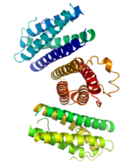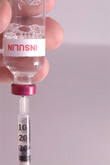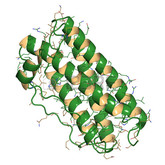Biosimilars
FDA approves adalimumab biosimilar Cyltezo
On 25 August 2017, the US Food and Drug Administration (FDA) approved its second biosimilar version of AbbVie’s Humira (adalimumab).
Australia’s TGA consults on naming of biologicals
Australia’s drug regulatory agency, the Therapeutic Goods Administration (TGA), announced on 28 July 2017 that it was opening a consultation on how to name biologicals.
Rituximab biosimilar CT-P10 could save Europe Euros 90 million in its first year
A recent publication in Advances in Therapy suggests that introducing CT-P10, a biosimilar of the anti-CD20 monoclonal antibody rituximab, would generate significant savings for European healthcare systems [1]. CT-P10 is approved by the European Medicines Agency (EMA) for all indications held by reference rituximab, including rheumatoid arthritis and haematological cancers, such as non-Hodgkin’s lymphoma and chronic lymphocytic leukaemia. Although the therapeutic benefits of anti-CD20 therapy are well established, the cost of reference rituximab is thought to create barriers to patient access [2]. It is hoped that the introduction of more affordable biosimilars will help address this issue. Gulácsi L et al. therefore quantified the potential budgetary impact of introducing CT-P10 for the treatment of rheumatoid arthritis and CD20-positive cancers in 28 European countries [1].
Biological drug evolution: inadequate short-term clinical trials
The safety profile of established biological drugs can alter over time following changes to manufacturing processes and short-term clinical trials fail to isolate adverse events, according to a report published by researchers in Scotland, UK [1].
EC approval for adalimumab biosimilar Imraldi
Samsung Bioepis announced on 25 August 2017 that it had received European Commission (EC) approval for its biosimilar adalimumab product Imraldi.
Barriers to the market access of biosimilar monoclonal antibodies
In September 2013, the first biosimilar monoclonal antibody (mAb) was approved by the European Medicines Agency (EMA), i.e. biosimilar infliximab (Inflectra/Remsima). These products entered the European market in 2015, after expiry of patent and other exclusivity rights of the innovator medicine Remicade. With the ever-increasing cost of health care and the economic pressure to reduce or sustain healthcare expenses, biosimilars could be instrumental in reducing cost for medication and increasing patient access to treatment. Although exclusivity rights of multiple mAbs are expired (rituximab in 2013, trastuzumab in 2014), only recently biosimilar mAbs other than infliximab are receiving marketing authorization (rituximab, adalimumab). Furthermore, earlier biosimilars have seen slow uptake in European markets. This may imply that several barriers hinder market access of biosimilar mAbs.
Adello Biologics starts phase I trial for pegfilgrastim biosimilar
US-based biosimilars specialist Adello Biologics has started a phase I clinical trial for a biosimilar version of Amgen’s Neulasta (pegfilgrastim).
Biosimilar pegfilgrastim highly similar to Neulasta
Canada-based Apobiologix published analytical results demonstrating the similarity of their pegfilgrastim product to the US reference product, Amgen’s Neulasta (pegfilgrastim) [1].
Biosimilars of insulin lispro
Last update: 26 January 2018
Insulin lispro is a fast acting insulin analogue used to treat people living with Type 1 or Type 2 diabetes. Insulin lispro has one primary advantage over regular insulin for postprandial glucose control. It has a shortened delay of onset, allowing slightly more flexibility than regular insulin, which requires a longer waiting period before starting a meal after injection. Both types should be used in combination with a longer acting insulin for good glycaemic control.
Real-life data supports efficacy and safety of biosimilar filgrastim
Biosimilars of filgrastim are widely used in the prophylaxis of chemotherapy‐induced (CIN) and febrile neutropenia (FN). However, there are limited observational data on the use of granulocyte colony-stimulating factor (G‐CSF) in non‐Hodgkin’s lymphoma (NHL) and its aggressive subtypes including diffuse large B‐cell lymphoma (DLBCL).













